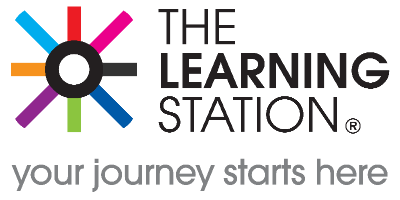Whether you want to do better at school, focus at work, or you just want to stay on top of your game, there are various reasons for desiring a boost in brainpower. But the sad fact is, as we age, our brain function declines.
However, a major study by the University of California has suggested that by keeping mentally active, in particular when you're older, you're more likely to maintain a healthy brain.
Brain training apps have been considered as a useful tool for mental stimulation. Even though there are studies that have failed to find a link between brain training and improved cognitive function, there's a host of research that prove the opposite.
One 2013 study published in PLOS One found that young adults who played brain training games show an improvement in working memory, brain processing speeds and executive functions. Another study presented by Alzheimer's Association International Conference demonstrated that older adults who took part in one-hour brain training sessions over a 5-week period were 48% less likely to develop cognitive decline over the next 10 years.
Since there are so many apps to choose from, we've hand-picked the best 7 brain training apps.
1. Lumosity
Lumosity is considered by many as the “original” brain training app. The app is used by more than 85 million people around the world.
Lumosity consists of more than 50 highly colourful and engaging mini-games that have been designed to exercise the five core cognitive functions: memory, speed, attention, problem-solving and flexibility. On completion of a game, users are shown how their results compare to other users in the same age group. This gives an insight into the areas which require the most attention.
The app was developed with the help of more than 100 researchers from across the globe. On Lumosity's website, it cites a study of more than 4,700 adults that found that engaging in Lumosity's brain training games improved brain function better than completing crosswords.
Related Learning: Functional Skills in English2. Elevate
Despite having fewer users than Lumosity, it holds the title for iPhone's best app of the year for 2014. The app has more than 40 mini-games that have been designed to boost maths, speaking skills, memory, attention and processing speed.
In comparison to Lumosity, Elevate has more of a mature feel. The mini-games take on a more serious approach with less focus on colours, and more on text.
Elevate provides their users with daily, weekly and monthly progress of overall performance, as well as providing more detailed reports on five specific areas: maths, writing, speaking, reading and listening.
3. CogniFit
Cognifit provides users with elegant, fun and addictive games that have been designed by neuroscientists. These game help improve cognitive abilities including memory, concentration and problem-solving.
On booting up the app for the first time, CogniFit asks their users to take an initial quiz which assesses their ability so it can adjust the level of difficulty as accordingly. Users can track their progress and gain access to insightful information about their overall brain health.
The developers of the app have found that users saw an improvement in cognitive function by spending at least 20 minutes, between two to three times a week, playing the games on the app.
Related Reading: 7 Apps To Help You Become Smarter and Productive4. Headspace
Headspace is a mindfulness-based app that aims to reduce feelings of stress and anxiety. There are numerous studies which show that high levels of stress can impact cognitive function.
Headspace guides the user through a range of meditation-based exercises and relaxation techniques to bring more awareness into everyday life.
Some of the exercises on Headspace can also help to improve concentration by practising focus of breath or on a specific object for a set amount of time.
5. Happify
Similar to Headspace, Happify trains your brain to be happier. The activities that are available on this app can help you develop your ability to conquer negative thoughts, practice gratitude, cope with stress and show empathy.
Based on the fundamentals of positive psychology, the games on Happify involves focusing on one's own strength and virtues to develop life-changing habits. The activities on the app consist of quizzes, polls, and taking the time to complete a gratitude journal.
Related Learning: Functional Skills in Maths6. Peak
Peak has been rated by Google as one of the best Android apps for 2016. The app offers more than 30 mini-games that help improve mental agility, concentration, memory, language and problem-solving.
All the games on the app have been developed by researchers and scientists from highly respected universities around the world, including the University of Cambridge and Yale University. And thanks to the visually attractive graphics, the games do appeal to both children and adults alike.
Users are provided with a personalised workout plan that is based on how they performed on the baseline tests.
Plus, it is also very easy to track cognitive performance. The app provides reports on individual game performance and overall performance on each of the five cognitive functions.
7. Fit Brains
Fit Brains is a product of Rosetta Stone - the education tech firm best known for their online language courses. Out of all the brain training apps on this list, Fit Brains boasts the largest variety, with more than 60 mini-games and over 500 personalised training programs.
With the help of neuroscientists, the games have been designed to improve key cognitive functions such as memory, speed of thinking, concentration and problem-solving. But what also sets Fit Brains apart from other brain training apps, is that it also encourages users to develop and improve their emotional intelligence via games that focus on self-control, social skills, social awareness and self-awareness.
Thanks for reading! Do you know of any other brain training apps? Please let us know in the comments section below.



 Student Login
Student Login My Account
My Account